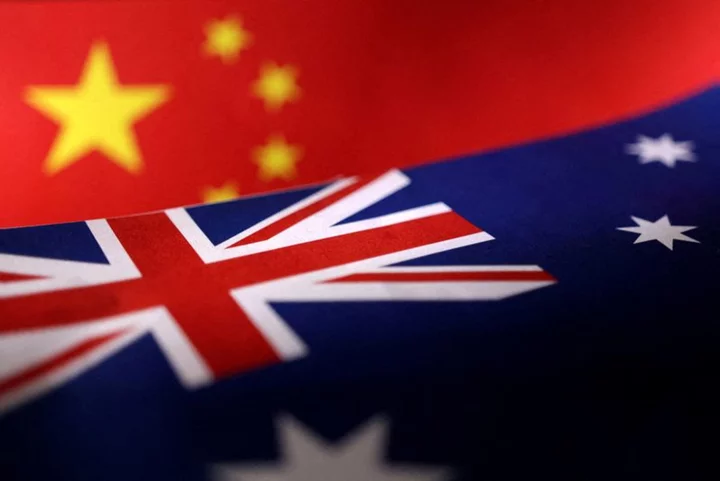BEIJING Australia's Trade Minister arrived in Beijing On Thursday, where he will meet his Chinese counterpart, as Canberra pushes for the removal of all trade barriers and for diplomatic relations to stabilise.
Trade Minister Don Farrell said he would meet with China's Commerce Minister Wang Wentao in Beijing and "be advocating strongly for the full resumption of unimpeded Australian exports to China – for all sectors – to the benefit of both countries and in the interests of Australian exporters and producers".
There has been good will on both sides but more needed to be done, he told reporters at Beijing's Capital Airport.
"Nothing is going to do more to achieve peace in our region than strong trading relationships between Australia and China," he said.
China is Australia's largest trading partner, with two-way trade in goods worth A$287 billion ($195 billion) in 2022, dominated by iron ore exports which China cannot easily replace. Yet an Australian trade minister has not visited China since 2019.
China's commerce ministry said Farrell will stay through Saturday, adding that it hopes the visit will further cement the "important consensus" reached between the two heads of state at a G20 meeting Bali in November last year.
"China hopes to exchange views to develop bilateral economic and trade relations, and move the ties forward," Shu Jueting, a ministry spokesperson said at a news briefing.
The ministers will also chair a Joint Ministerial Economic Commission, a meeting first held in 1986, but suspended since 2017 when ties began to deteriorate over diplomatic disputes.
Australian wine, beef, barley, coal, seafood and timber exports to China were hit by trade curbs in 2020, and an Australian journalist Cheng Lei was detained in Beijing on national security charges, after Australia called for an international inquiry into the origins of COVID-19, which angered Beijing.
Canberra had earlier barred Chinese telecommunications giant Huawei from its 5G network over national security concerns.
Diplomatic tensions have eased since Australia elected a Labor government in May 2022, although there has been no shift in policy on screening foreign investment for national security concerns, and a defence shake-up announced last month will draw Australia closer to its security alliance partner the United States.
Prime Minister Anthony Albanese said in a British television interview last week his government "hasn't engaged in rhetoric that is inflammatory" about Beijing.
Australia last month suspended its complaint over Chinese barley tariffs at the World Trade Organization (WTO), as a WTO panel was due to report its findings, giving China time to review the 80.5% duties imposed in 2020.
"The Australian Government is pleased there have been several positive trade developments, including the resumption of coal, cotton, and copper trade and China's agreement to undertake an expedited review of duties on Australian barley," said Farrell.
Australia exported roughly $40 million worth of copper ore and concentrate to China early this year, the first month of exports since 2020, Australian customs data shows.
Farrell said he would also raise "other issues of importance to Australians", a likely reference to human rights cases.
Albanese has said his government would continue to raise the case of Cheng, detained in Beijing for 1,000 days.
($1 = 1.4743 Australian dollars)
(Reporting by Beijing newsroom and Kirsty Needham in Sydney; Additional reporting by Lewis Jackson in Sydney; Editing by Mark Potter and Sonali Paul)

